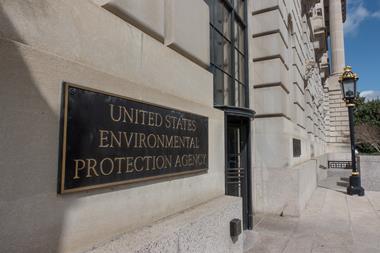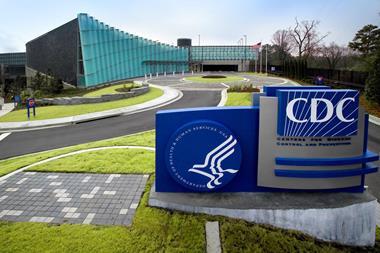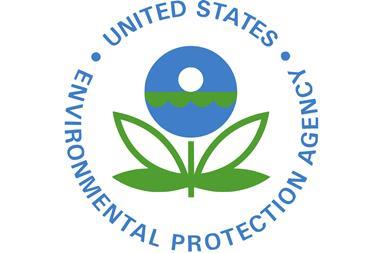Officials at the US Environmental Protection Agency (EPA) have ‘improperly altered’ safety assessments of new and existing chemicals for years and are continuing to do so, four scientists at the agency claim in a complaint filed by the non-profit environmental protection organisation Public Employees for Environmental Responsibility (Peer).
The EPA employees disclosed ‘disturbing evidence of fraud and corruption’ within the agency’s Office of Chemical Safety and Pollution Prevention (OCSPP), involving ‘deliberate tampering’ with risk reviews for chemicals such as per- and polyfluoroalkyl substances (PFASs), according to Peer. PFASs are a class of persistent, highly mobile compounds, some of which have been linked to health problems like liver damage, birth defects and various cancers.
On behalf of the EPA scientists, Peer has requested that the EPA’s Office of Inspector General investigate these allegations that civil service managers at the agency before, during and after the Trump administration, routinely deleted language in these chemical risk reviews that identified potential adverse effects – including developmental toxicity, neurotoxicity and carcinogenicity – and significantly revised the conclusions of such reports to indicate that there are no toxicity concerns despite significant data to the contrary.
Under the 2016 amendments to the Toxic Substances Control Act (TSCA) that regulates chemicals in the US, the EPA is required to evaluate risks posed by existing and new chemicals before they are manufactured or imported into the country. Peer’s new complaint asks the inspector general to identify inappropriate changes that have been made to these chemical safety reviews and restore the correct risk information.
‘These alterations of risk assessments are not just artefacts of the Trump administration; they are continuing on a weekly basis,’ said Peer’s director of science policy, Kyla Bennett, an attorney formerly with the EPA. ‘All of these altered assessments need to be pulled back and corrected in order to protect both workers handling chemicals and the American public.’
Although EPA staff scientists raised these concerns for several months and filed a complaint under the EPA’s scientific integrity policy, Peer says that they were not addressed, and that these whistleblower scientists have been harassed by managers named in the complaint.
Peer forwarded the complaints not only to the inspector general, but also to congressman Ro Khanna, who chairs the US House of Representatives Oversight and Reform Committee’s environment subcommittee, as well as to Michal Freedhoff, who has led the OCSPP since June.
‘Our hope is that the [inspector general] will do a comprehensive yet quick investigation of what our clients are alleging,’ Bennett tells Chemistry World. ‘Every day that goes by is another opportunity for dangerous chemicals to get out into the market without undergoing the proper review,’ she said, suggesting that these concerns demand a congressional hearing.

















No comments yet